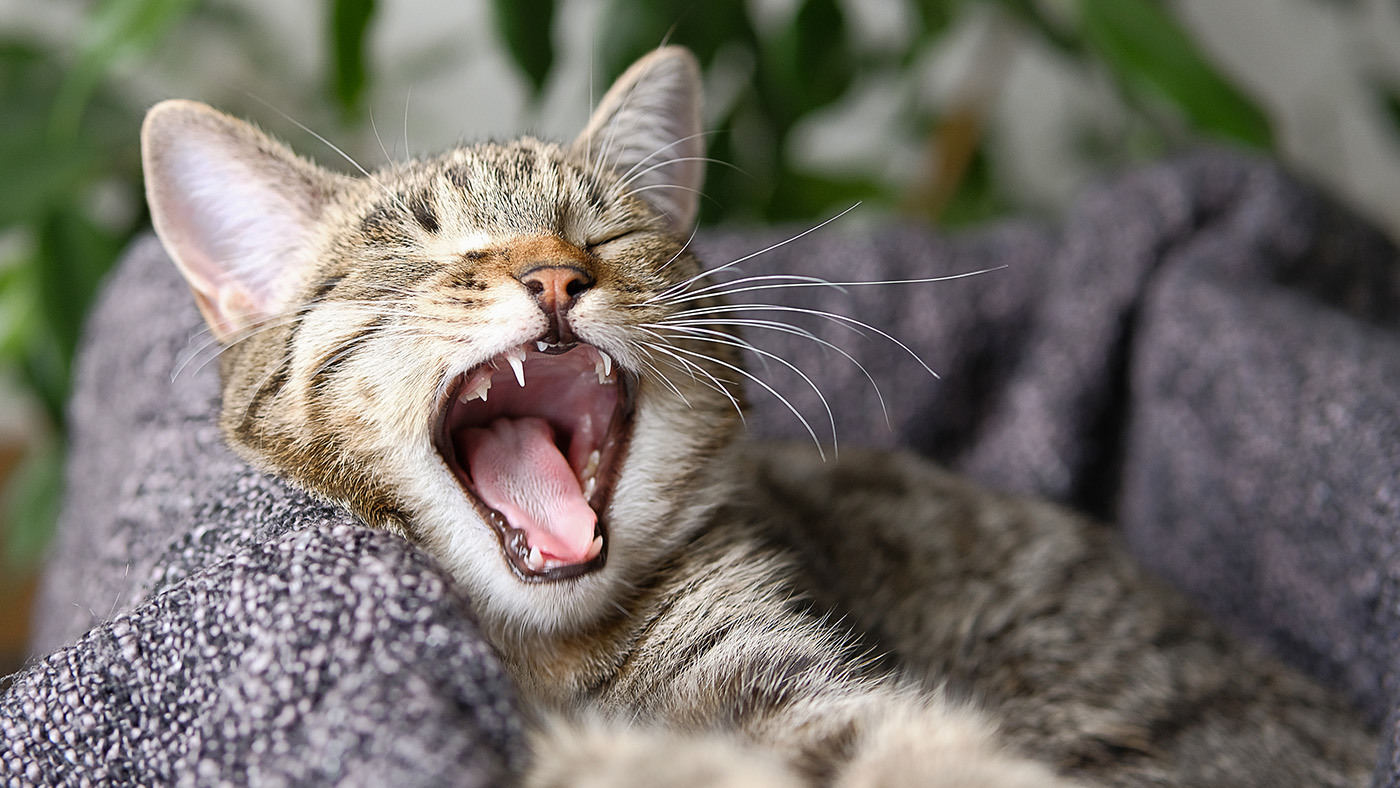‘Cats are masters at hiding pain’ so dental issues in cats often go unnoticed, vet explains
If you don’t clean your cat’s teeth already, now is a great time to start

Get the best advice, tips and top tech for your beloved Pets
You are now subscribed
Your newsletter sign-up was successful
It’s no secret that cats are very good at cleaning and grooming themselves, and this adds to the idea that cats are quite self-sufficient.
However, one vet has warned that more cats than we think struggle with dental issues that often go undetected. Because we often assume that our cats are looking after their own mouths, eating the right food, and cleaning themselves, we don’t brush our cats’ teeth.
However, recent research has indicated that 85% of cats aged three and above in the UK live with dental disease, such as stomatitis – around 1.8 million cats have decayed teeth but don’t show any symptoms.
According to the Royal Veterinary College, periodontal disease is the most common illness to be diagnosed in UK cats, with 15.2% of cats affected. However, this figure could be higher, as most cases aren’t diagnosed – cats have a great ability to suppress chronic pain, so it’s vital to keep cat teeth clean.
Dr Aimee Warner, resident vet at UK-based pet insurance company Waggel, explains that while many dog owners also forget about dental care, “dogs let you examine their mouths or show signs of discomfort, but cats are masters at hiding pain.
“Many owners have no idea their cat is suffering from painful dental conditions until the disease is advanced. By the time obvious symptoms arise, the damage is already extensive and costly to treat.”
Dental issues can impact our felines’ overall health, too. They can potentially lead to kidney, liver, and heart disease when mouth bacteria enter the bloodstream.
Get the best advice, tips and top tech for your beloved Pets
So, Dr Warner recommends scheduling twice-yearly dental assessments, even if your cat seems fine otherwise, and keeping an eye out for subtle signs of dental pain like pawing at the mouth, dropping food, bad breath, and reduced grooming.
Watch out for changes in eating habits, too, as this can often be the first indication that there’s something wrong, and consider incorporating dental-specific diets and treats.
If you have any concerns at all, you should speak to your vet. Dr Warner urges us to trust our instincts when it comes to our cat's teeth, particularly as the first signs can be very subtle.
She sums up: “Cats are genetically programmed to conceal pain – in the wild, displaying weakness puts them at risk. This means your cat may have been suffering in silence for months or years before showing visible signs of dental disease.
“Regular veterinary examinations are crucial as they can spot problems your cat is instinctively trying to conceal from you. Preventative dental treatment does more than save you money over the years; it prevents unnecessary suffering and can add years to your pet's life and quality to those years."
Want to learn more? Here are eight facts about cat teeth, plus some kitten teething advice from a vet

Adam is a freelance journalist specialising in pets, music and culture, and mental health and wellbeing. He investigates and writes the large majority of news on PetsRadar, and collaborates with veterinary experts to produce informative pet care content.
Adam has a journalism degree from Southampton Solent University and a masters degree in Magazine Journalism from Cardiff University. He was previously senior editor at dog advice website DogTime.com, and has also written for The Independent, GoodToKnow and Healthline.
He owns two rescue cats, Bunny and Dougie, and has also previously had a rabbit, fish and Roborovski dwarf hamsters.
